making a three day whistle-stop tour of sub-Saharan Africa on a mission to strengthen Britain’s post-Brexit trade and investment with a continent that hosts some of the fastest growing economies in the world.
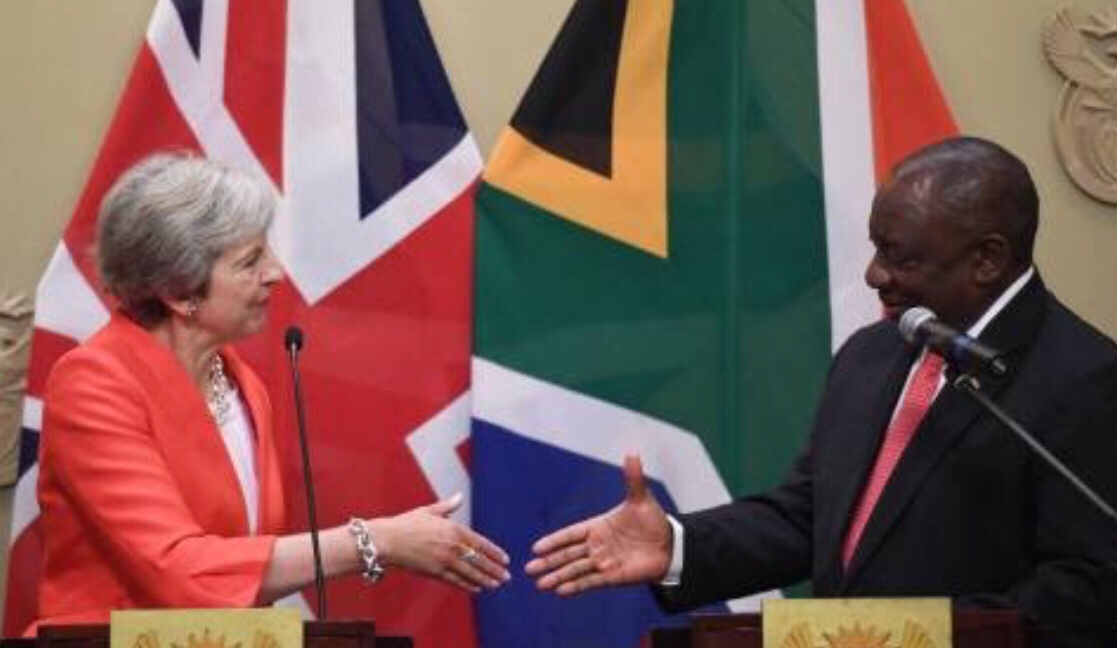
The Federation of Small Businesses welcomed the prime minister’s initiative. “Africa is an important market for small firms, and as the continent continues to grow, business links will no doubt increase with it,” said Mike Cherry, FSB national chairman.
However, the entire African continent accounts for just 3 per cent of all UK goods and services exports. By contrast, Europe takes the lion’s share — 54 per cent — of UK trade.
Brussels is not the reason behind Britain’s weak trade links with Africa. France, Germany and Italy — all EU members — export more than double the value of goods to the continent than the UK, according to the International Trade Centre. Even Spain, which has an economy half the size of the UK’s, exports more than Britain.
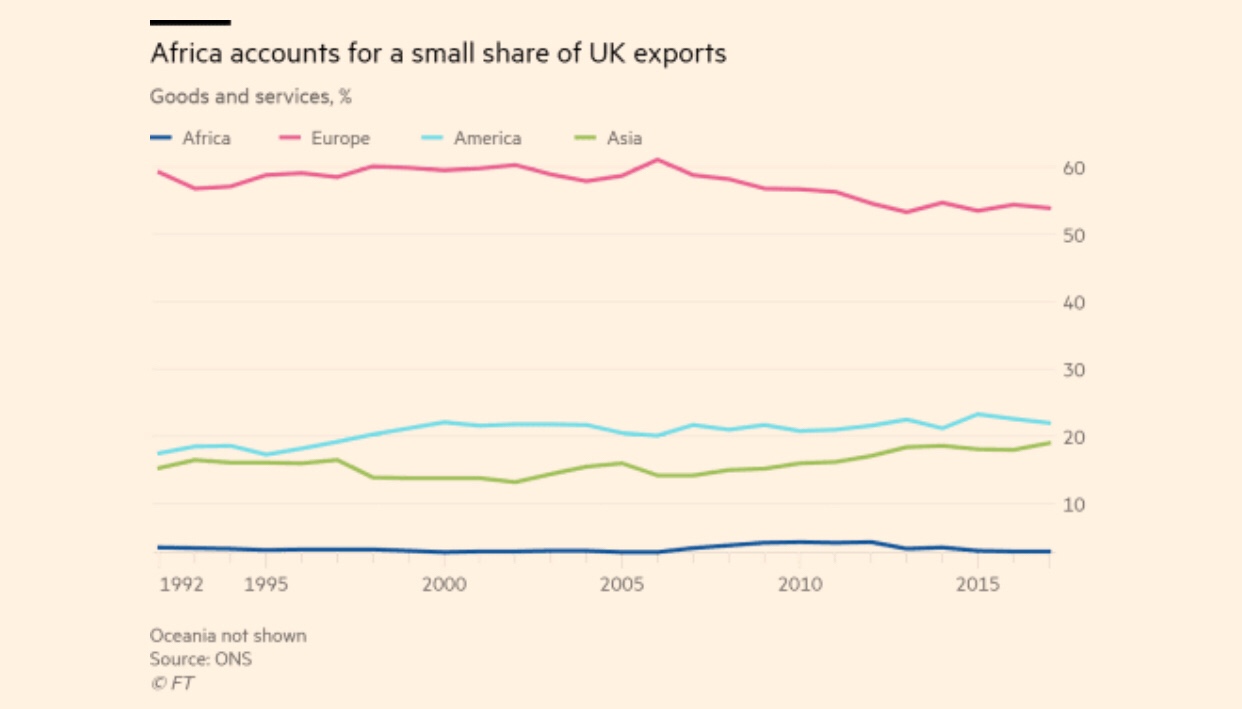
The UK’s trade presence in Africa was not always this small: until the late-1990s Britain accounted for nearly 7 per cent of the continent’s imports. Now that share has dropped to just over 2 per cent.
“The reasons for a decline in trade between the UK and Africa are complex,” said Peg Murray-Evans, an expert on EU-Africa trade relations at the University of York. “These include the lack of competitive exports from Africa and the rise of other competitive economies.”
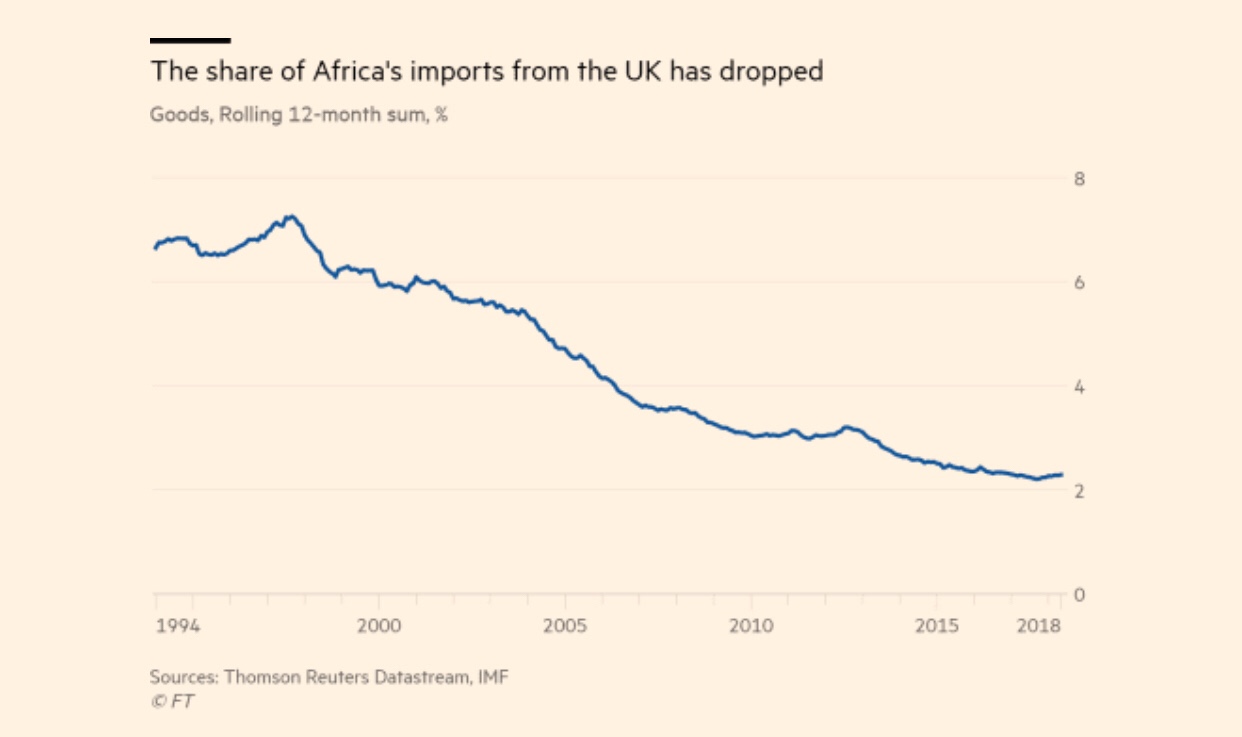
The UK government appears optimistic that it can change this. “As the prime minister announced during her speech in South Africa, the UK’s ambition is to be the G7’s number one investor in Africa by 2022,” said George Hollingbery, international trade minister.
“A range of measures were announced to help to grow trade and achieve this ambition including the rollover of the UK-Southern African Economic Partnership Agreement on trade as soon as the EU deal no longer applies to the UK and the Africa Investment Summit to be held in the UK in 2019,” he added.
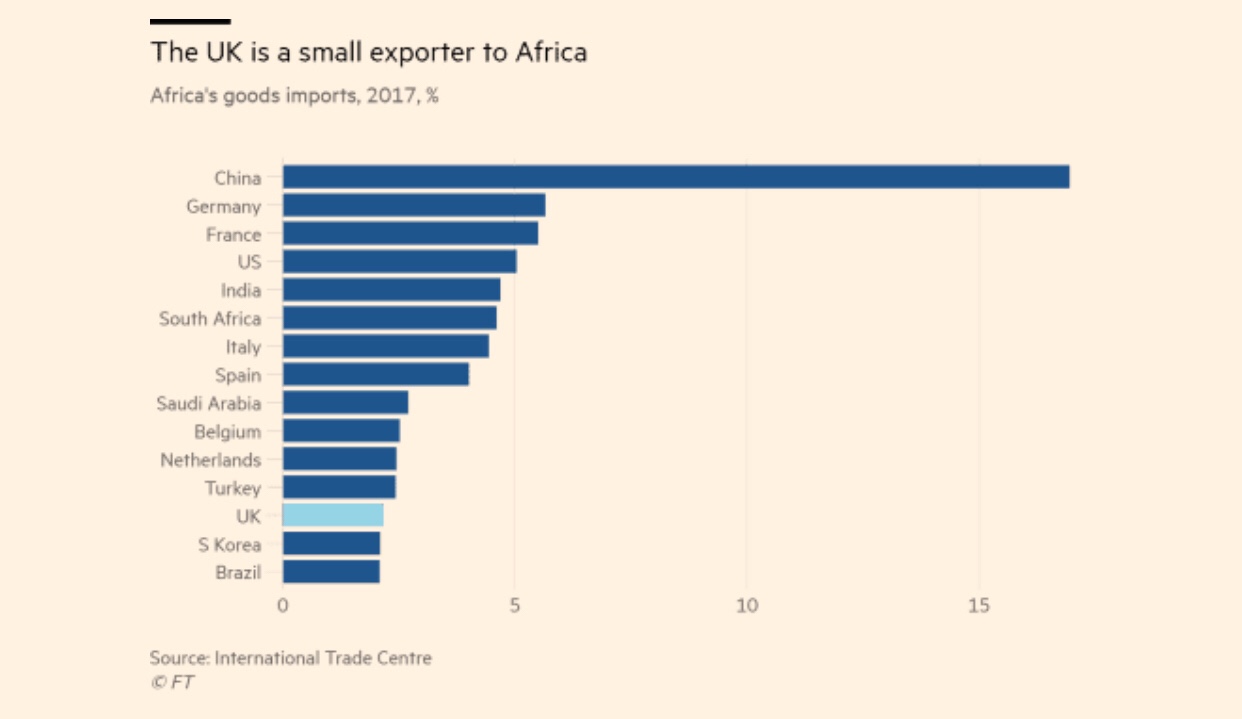
However, Britain faces strong competition, mainly from China which has increased its influence across the continent in recent decades.
Chinese goods exports to Africa are eight times larger than those of the UK and even bigger than the top three exporters — Germany, France and the US — combined.
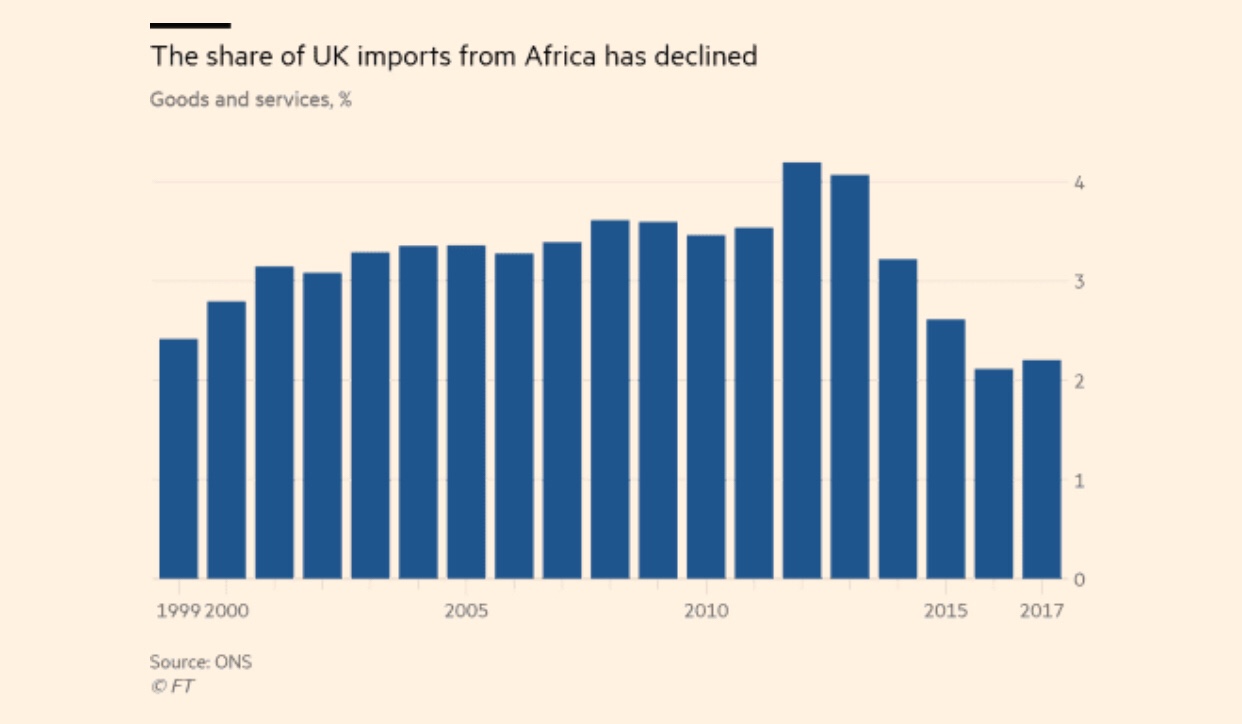
Mrs May is visiting South Africa and Nigeria, the two African countries receiving the largest value of UK exports of goods and services. Yet their combined value is just £7.3bn a year — only about one-sixth of the £39bn worth of goods UK exports to the Netherlands annually. Later this week the prime minister will also go to Kenya, a smaller UK trading partner but a fast growing economy.
Imports from Africa form just 2 per cent of total UK imports, partially as a consequence of falling commodity prices. Fuel, precious stones and fresh fruit dominate the trade, according to the International Trade Centre. By comparison, trade with the EU is dominated by machinery and vehicles, either as finished goods or as parts and components.
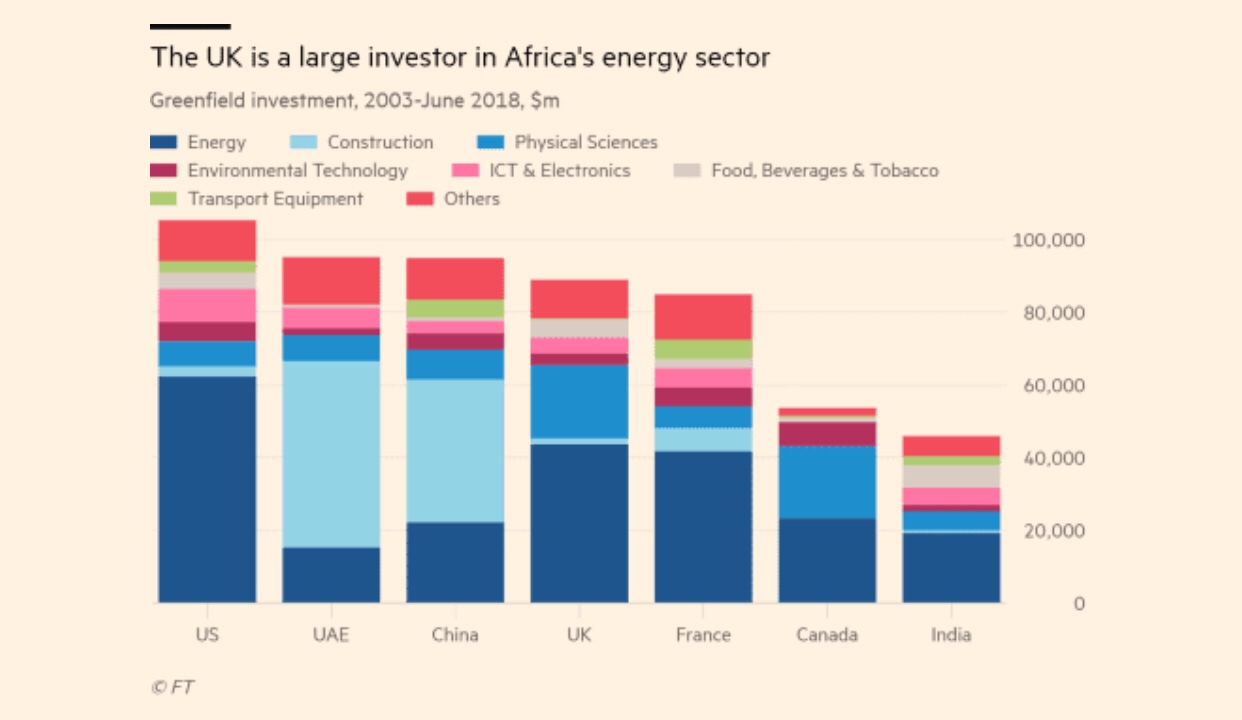
The UK has a stronger investment presence in Africa, however. According to fDi Markets, a company tracking greenfield investments, the UK is the continent’s fourth largest investor after the US, the UAE and China. While the latter invest in African construction projects, the US and the UK are largely focused on the continent’s energy sector.
Source: FT
It’s not an easy time to be involved in international trade, with the world’s two biggest economies – the US and China – trading insults and imposing tariffs on each other. Beijing says it is reporting Washington to the World Trade Organisation. The current tensions were sparked by President Trump’s decision to impose tariffs on billions of dollars on imports from China, the EU, Canada and Mexico.
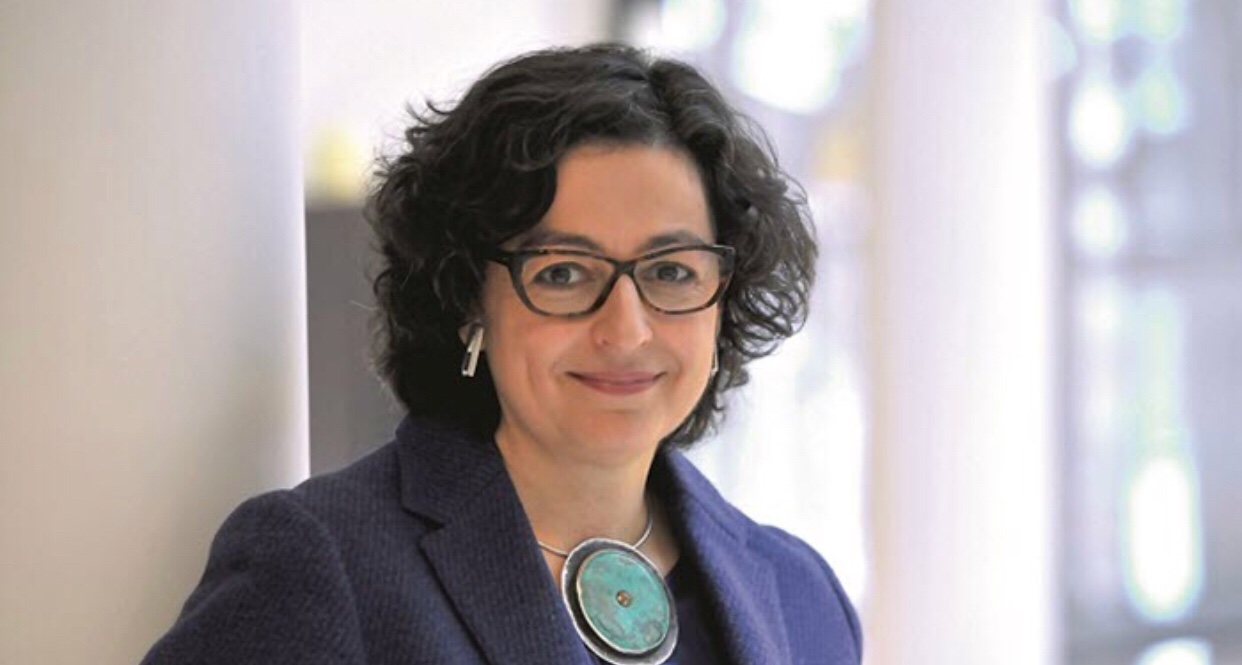
One of the true leaders, ambassadors for Trade Facilitation is Arancha Gonzalez – Executive Director of the International Trade Centre (ITC).
I have met Arancha many times and she is one of the most competent and creadible leaders there is. A true warrior for Trade Facilitation.
In a BBC HardTalk Show Zeinab Badawi recently spoke to Arancha about international Trade and how it is the hope of the future. A brilliant interview. Watch it here: https://bbc.in/2BTTMhn
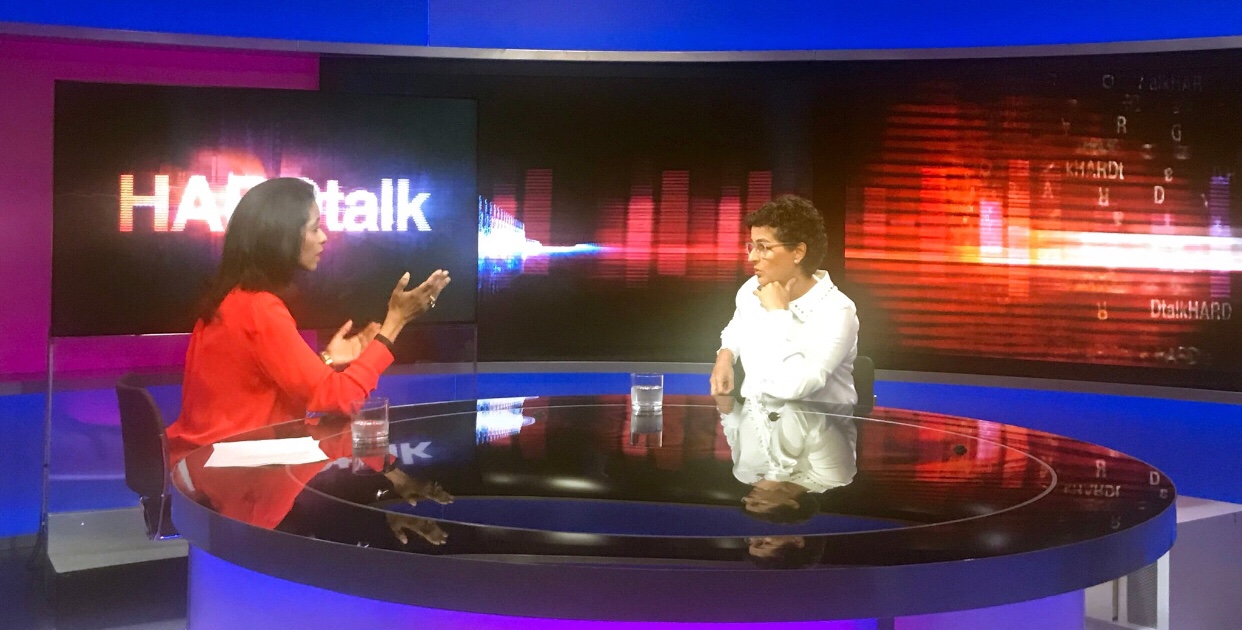
The International Trade Centre, which is co-owned by the World Trade Organisation and the United Nations. Her mandate is to help small and medium businesses in developing countries participate in global trade. But with an international trading system that some believe is discredited and outmoded, is she pursuing the wrong ambitions? In the interview tackle these questions in a great way.
Swedish EU affairs and Trade minister Ann Linde says it is regrettable issue has become ‘a matter of ideology’ in UK.
The Irish border challenge in Brexit negotiations has to be solved by Britain, not the EU, the Swedish government has said.
The Swedish minister for EU affairs and trade, Ann Linde, said it was regrettable the Conservative party had made such an “extreme ideological” issue of the need to maintain the existing invisible border between Northern Ireland and Ireland after Brexit.
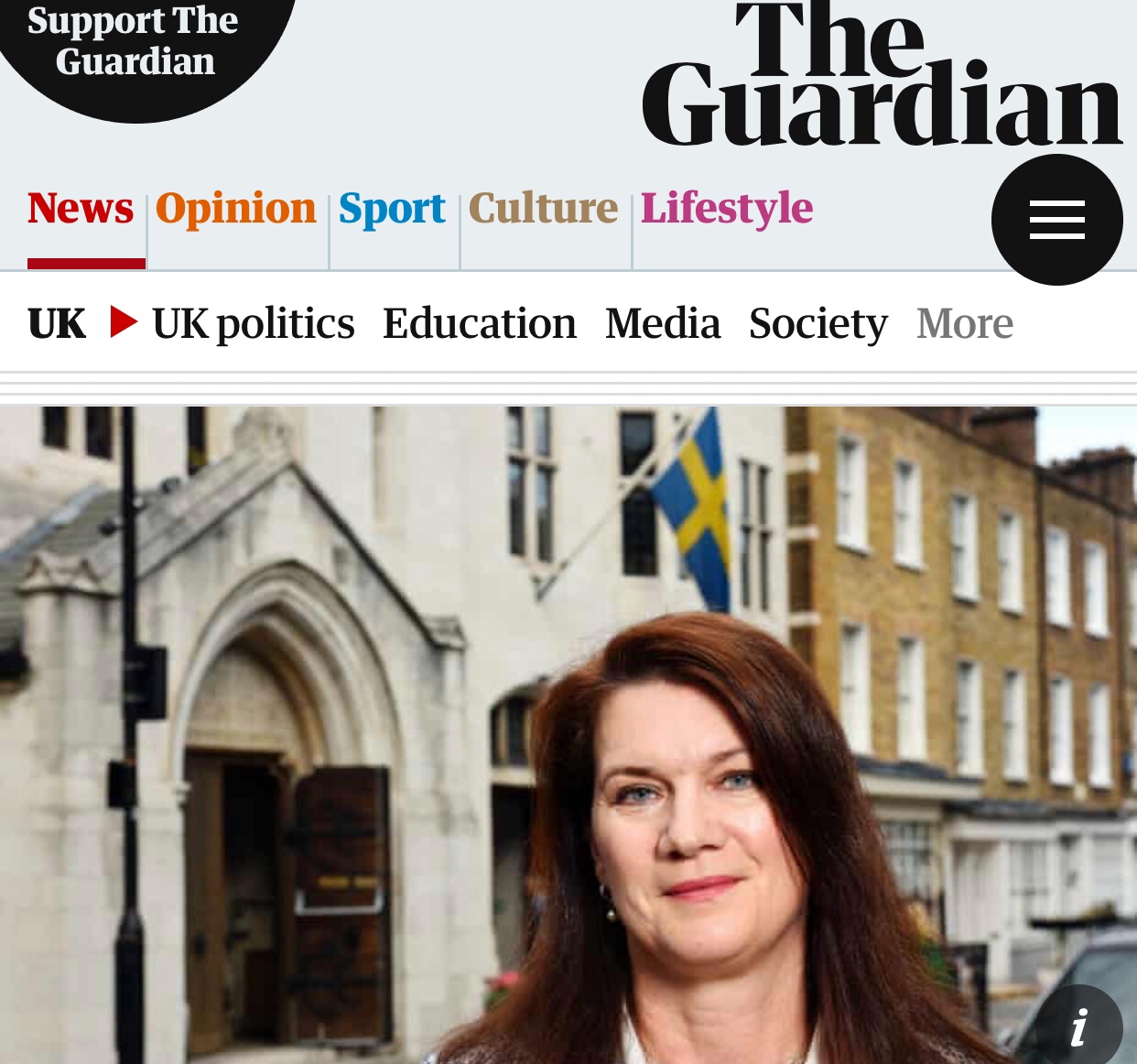
“I feel sorry that this issue of the backstop is being so extreme ideologically and difficult here. I think it is unfortunate that this backstop has become so loaded and a matter of ideology,” she told the Guardian.
She made her remarks just hours after a private meeting with the Brexit secretary, Dominic Raab, in London. “After our meeting [with Raab] it’s clear this issue is very, very difficult [for the Tories],” she said.
Linde said it was up to Britain to come up with a solution.
“As it looks now, we try to find what if there is any way for a soft border. I think this is for Britain to find out. Britain is leaving and it wants to make use of the single market, that’s in the white paper.
“The British have been talking about the technical solutions but little detail on the backstop,” she said.
Linde, who visited Dublin and Belfast in May to find out more about the border issue, said the impasse was “complicated to solve” but added: “It is not for us to figure out.”
She was speaking as it emerged that Jacob Rees-Mogg the head of the hard-Brexit European Research Group of Tory MPs, said it would be possible to “inspect” people crossing the border in similar vein to checks during the Troubles.
His comments were branded “ill-informed” by the Irish deputy PM, Simon Coveney.
Linde said Britain already accepted checks on the Irish Sea for animal health so the opposition to different regimes in Northern Ireland and Britain post-Brexit was inconsistent on a policy level.
“As I see it, there are already border checks because Ireland is an island for example with animals,” she said.
There has been speculation that the EU would budge on its sequencing to see if an overall deal on customs and the single market would obviate the need for a backstop for Ireland.
However, Linde said the EU was insistent on a backstop, because it would operate as an insurance policy for Ireland whoever was in power in Westminster.
One idea floating in Dublin last week was for checks on goods going into Northern Ireland at British ports such as Liverpool and Stranraer. This would mean everything going on to the island of Ireland was already checked for compliance with EU rules and if the freight went on to the Irish Republic there would be no need for border checks, thus preserving the integrity of the single market.
However, this is unlikely to be acceptable to Brexiters,who are opposed to Britain conducting work on behalf of the EU on British soil.
Linde was in London to meet Swedish citizens over continuing concerns over their rights to remain in the UK post Brexit.
She said Raab had given her clear assurances that EU citizens could be allowed to stay in the UK but questioned whether they would retain the same rights.
“And I believe him. I really believe him,” she added. “But I do not know and he did not say if we have no withdrawal agreement, what rights people will have, like pension, sickness insurance etc,” she said.
After her meeting at the Swedish church in London she said Swedish nationals “felt a little bit assured by that”.
She also said the EU would not be dropping its insistence that there had to be a decision on Ireland before an overall withdrawal agreement.
“I have been to all the European affairs council meetings and the question of Ireland is there every time and every time people are united about this. We are very unified,” she said.
It will be raised again when the EU 27 meet in Salzburg on 18 September, she added.
The border issue has become a greater challenge since July this year when an amendment by Labour Brexit supporter Kate Hoey to the trade bill was nodded through by Theresa May.
Although it got little publicity amid the chaos of the knife-edge vote in July, it commits May to an autumn law making a border in the Irish Sea illegal, thus killing off the EU’s backstop proposal for special customs arrangements for Northern Ireland.
Source: The Guardian






You must be logged in to post a comment.